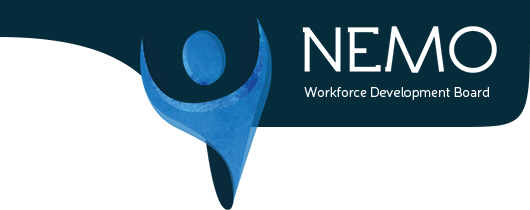



The Northeast Missouri Workforce Development Board has developed an industry-focused sector strategy that aligns public agencies with industries, provides an operational framework for workforce development services, and creates a strategic lens through which regional talent development is carried out.
The sectors identified by the Northeast Missouri Talent Pipeline Committee are:
• Advanced Manufacturing with an emphasis on welding
• Healthcare
• Transportation/Logistics
• Agriculture
•Construction
While the region is not limited to serving the sectors listed above, these industries offer the greatest number of employment opportunities in the local area.
The Sector Strategy focus is to provide the under-skilled workforce with sector-focused occupational skills training that is designed and implemented with regional businesses’ input and support. This helps to ensure that training graduates are equipped with the skills required to be productive employees at these businesses on their very first day of employment.
When paired with career pathways, choices are broader and better with more beneficial outcomes for employers and workers. The object of career pathways is to provide a strategic plan combining education and training for job seekers to better align skills training to the employers’ needs. This approach seeks to develop a culture that embraces sectors and brings all partners in the workforce development system engage to fulfill the needs of the employers and jobseekers.
Employer engagement is the foundation of sector strategy development, as talent pipeline strategies for key industries are driven by employers’ stated needs. Connecting with employers and building deep and sustained industry partnerships enables the workforce system to appreciate industry trends and dynamics, understand employers’ training and other workforce needs, solicit feedback on and guidance to the system, and implement value-added strategies and services that address industries’ identified workforce needs.
Workforce recognizes that they have two client groups – the jobseekers and the businesses. We know that businesses cannot succeed without workers. If the available workforce is not skilled to meet the business needs, it puts business at a competitive disadvantage.
Northeast Missouri Workforce Development Board has developed a team to address the needs of the jobseekers and businesses. The primary focus is to best equip youth and adults with the skills to succeed in postsecondary education and employment. By engaging the employers to determine the skills and education needed, the team can work with local educators to develop the training needed to fill the need, thus providing the employers with a strong pipeline of qualified workers and strengthening our region’s economy.
Career pathway-oriented workforce development has the goal of increasing individuals’ educational and skills attainment and improving their employment outcomes while meeting the needs of local employers and growing sectors and industries. Career pathway programs offer a clear sequence, or pathway, of education coursework and/or training credentials aligned with employer-validated work readiness standards and competencies.
This systems approach makes it easier for people to earn industry-recognized credentials (through avenues that are more flexible and opportunities for relevant education and training) and to attain marketable skills so that they can more easily find work in growing careers. These comprehensive education and training systems are particularly suited to meet the needs of working learners and non-traditional students.
Career pathways are education, training, and credential sequences that align to talent needs of targeted industry sectors and are employer-driven. Pathways articulate the full range of K-12, adult education, and post-secondary education assets and embed “stackable” industry-recognized credentials. Career pathways accelerate educational attainment and career advancement in high-demand occupational areas by making work a central context for learning, integrating foundational and technical education, and providing students and workers with key wrap-around supports.
Career pathways are a key approach for operationalizing sector strategies
• Pathways illustrate the talent pipeline for targeted industry sectors, from entry-level to advanced occupations
• Pathways are a strategy for aligning education and training to employers’needs and being more agile/responsive in real time.
National Career Readiness Certificate (NCRC) is a nationally recognized assessment-based credential available at no cost to the jobseeker or employer. The NCRC is composed of three WorkKeys® assessments that measure skills critical to on-the-job success across industries and occupations:
• Applied Math
The Applied Math assessment measures critical thinking, mathematical reasoning, and problem solving techniques for situations that actually occur in today’s workplace. While individuals may use calculators and conversion tables to help with the problems on the assessment, math skills are still needed to think them through.
• Workplace Documents
The Workplace Documents assessment measures the skill people use when they read and use written text such as memos, letters, directions, signs, notices, bulletins, policies, and regulations on the job.
• Graphic Literacy
Workplace graphics come in a variety of formats, but all communicate a level of information. From charts to graphs, diagrams to floor plans, identifying what information is being presented and understanding how to use it are critical to success. The Graphic Literacy assessment measures the skill needed to locate, synthesize, and use information from workplace graphics.
The NCRC is useful for all industries and jobs at every level:
Certificate Level 3 score on all assessments earns Bronze
Certificate Level 4 score on all assessments earns Silver
Certificate Level 5 score on all assessments earns Gold
Certificate Level 6 score on all assessments earns Platinum
Certified Work Ready Communities (CWRC)
Missouri’s CWRC initiative is a voluntary effort to align workforce and education to meet the economic needs of the state and local communities. It is guided by key community leaders (elected officials, economic development, business leaders, chambers of commerce, educators and workforce development, in each county).
Missouri’s vision for the Certified Work Ready Communities is to attract, retain, and develop a workforce with education and fundamental skills- Working Documents, Applied Math, and Graphic Literacy – to succeed in the 21st Century.
Missouri’s effort for Work Ready Communities will result in strengthening existing businesses, attracting new businesses, growing jobs, and developing a strong talent pipeline for the state’s future growth nationally and globally.
For More Information on Missouri Certified Work Ready Communities
Click on Link
Missouri Certified Work Ready Communities

MISSOURI RANKS AMONG TOP STATES IN U.S. FOR READY WORKFORCE IN RURAL COUNTIES
(Article excerpted from Missouri Partnership http://www.missouripartnership.com) • September 22, 2017
Missouri was recently ranked among the top 10 states in the U.S. based on the number of ACT National Career Readiness Certificates (NCRCs) in rural counties, according to Site Selection magazine. Missouri ranked 9th on the list with more than 11,000 NCRCs in rural counties.
“Rural communities benefit from being able to align the skills of their workers to the skills needed by local employers, giving them an economic advantage to support existing industry and to attract new companies,” said Debra Lyons, principal strategist, workforce engagement external engagement at ACT. “When individual skills are aligned to the skills needed for a job, workers tend to learn job-related tasks more quickly, benefit from on-the-job training and obtain new knowledge and skills.”
The National Career Readiness Certificates are a work-related skills credential providing objective documentation of an individual’s skills that is accepted nationwide by many employers. ACT has awarded more than 78,000 National Career Readiness Certificates to workers in rural and urban Missouri, including more than 6,500 certificates to Missouri veterans.








